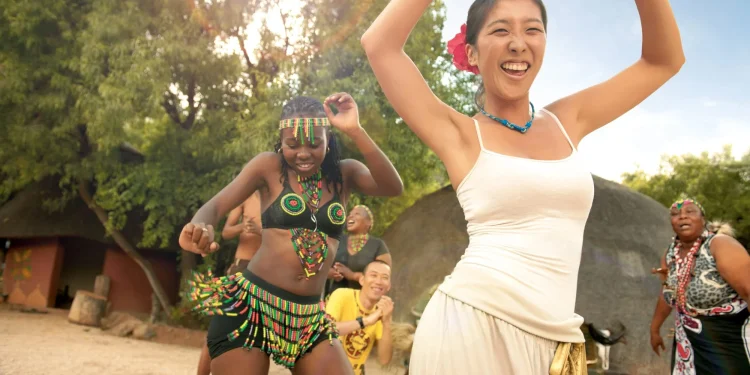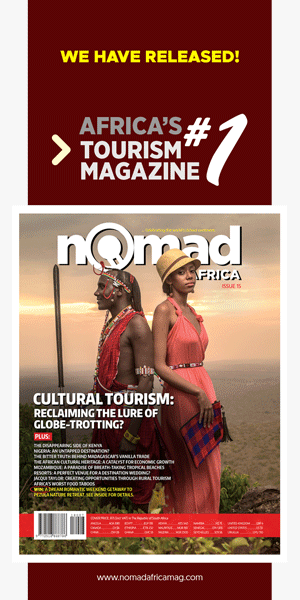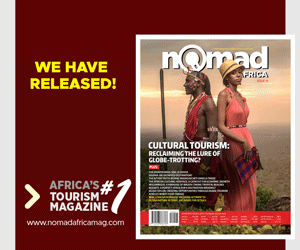Africa is the land of rhythm and has a rich musical background. For a long time, music has played an integral role in the day-to-day activities of our African setting. For centuries, music has been playing a crucial role in shaping society and identities. The scope of music has been far-reaching and has provided parameters that can be used to frame experiences, perceptions, behaviour, and feelings.
Music is a powerful language of emotion that has no boundaries or limitations. Throughout the years, music has mirrored the history, norms, values, and mentality of society. It has been used to demonstrate and keep the traditions and customs of different societies across the world.
In traditional Africa, music was always a huge part of religious ceremonies, festivals, and social rituals. Traditionally, songs have always been used for the important events in a person’s life (birth, coming of age, marriage, and death). Music in the African culture was created by different groups of the community, depending on age, sex, occasion, and religion.
In those old days before the missionaries came to Africa, most of the tribes in Africa did not know how to read and write, they created songs orally and performed depending on the occasion and time of year or season, which was influenced by the geographical weather.
Traditional African music kept the melodies short, simple, and repetitive. The melodies would be changed at will, so that performance had different variations and themes. Songs and dances were performed collectively by different groups of the community or tribe, they did hand-clapping, horn blowing, and drum beating rhythmically according to the song.
Music was considered an art created for various reasons and it had a very big influence on our African culture. Traditionally, music was a way to speak and express emotions from the heart and mind and influence the way of life in various ways. Parents would sing songs to their children to teach them important life values in a memorable and fun way.
Music influenced the moral behaviour of the African people in the community, some music could condemn the bad behaviour and other types of music could praise the best cultural behaviour amongst the people, and this promoted peace, love, and harmony in the community.
People were morally upright encouraged by the songs they listened to. Songs were used by the people as a tool to pass information from one generation to another. Grandparents would incorporate folk songs while telling their grandchildren stories in the evening around the fireplace. Music was not only used to entertain and educate the kids but as a way to bond. This was how folk stories and songs were passed on from one generation to the other. This was possible because the language used was simple and easy to remember and the song was created collectively.
The African culture did not encourage individualism amongst its people. The songs expressed their rich culture and carried it on to the next generation through the performance of these songs and dances. The young ones could grow up knowing their way of living that they learned from their parents and relatives of the generation before.
This made it possible for the culture not to deteriorate as people interacted with others from different cultural practices. Traditionally, most songs were created or sung according to the occasion at hand. During the birth of a newborn baby, there were songs and dances for that specific time, women celebrated and sang to appreciate and welcome the new life and also to encourage the mother of the newborn.
In birth ceremonies, women were the most involved, men and children were not welcomed in the birth ceremonies. At the wedding ceremonies, the songs and dances performed were about the celebration of the union of the two people and also to encourage the community about the importance of marriage in the African culture.
The song and dances performed at the funerals were about celebrating the life of the deceased and also expressing the sorrow of losing a loved one in the community. In some communities they believed that the songs and dances they sang were leading the dead to the next life after death. Songs expressed what one felt emotionally due to loss.
Music unified people in communities, it brought people from different locations, especially the youth or the young adults, during the dances organised for this particular group to mingle and know one another. From this organised dancing and songs ceremonies the youths met and as a result, they got married and families were formed and this continued the bonding of different clans of the same tribe.

This was very beneficial to the growth of the tribe, Africans believed that having many children was very important and only in marriage could that be achieved. Entertainment was another area in the African culture where songs and dances were performed just to enjoy life and get together with fellow people in and out of the community.
During this event, the children would also sing and dance, all the groups in the tribe had their songs and dances for entertainment because age was a very big factor in most cultural practices. Music was a form of entertainment and culture accepted it as a way of getting together to enjoy life.
Most of the people in Africa believed in the gods or supreme beings. They believed God was the giver and provider of all the things on earth. And some songs and dances were for the gods who helped the community during the hard times. When there was a famine, they prayed, danced, and sang for the gods to hear their cry.
Music influenced the bond between the gods and the community people. They offered sacrifices and the religious elders led the tribe in these ceremonies with specific music fit for this occasion. Music was used as a way to ward off evil spirits and to pay respects to good spirits, the dead, and ancestors.
Music heavily influenced the African traditional culture in all aspects of life: from birth to death, in economical and religious activities of a certain tribe.
The music reflects the cultural characteristics of a society. It is a powerful communication and art form. Traditionally music was a big part of the culture and we still incorporate it into our daily lives.





















